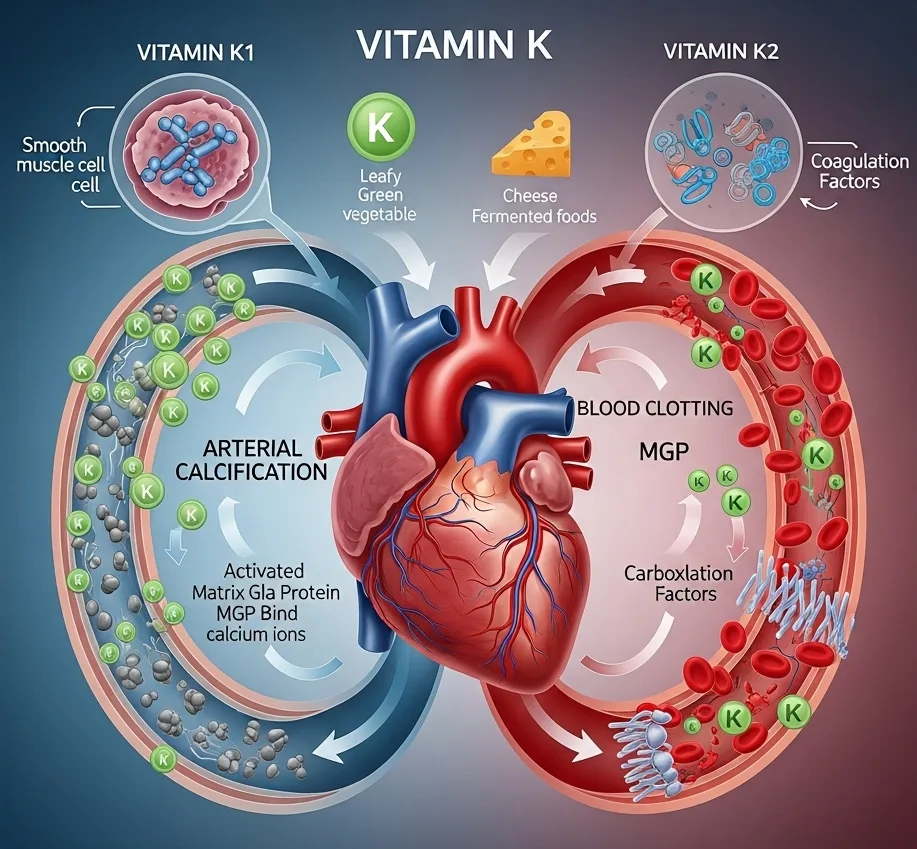Vitamin K: The Unsung Hero of Cardiovascular Health One of the significant health concerns associated with steroid use is the increased risk of cardiovascular disease, stemming from a process known as vascular calcification—the hardening of artery walls due to calcium buildup.
This is where Vitamin K plays a crucial, protective role.
The Role of Vitamin K in Cardiovascular Health
Vitamin K is essential for activating a specific protein called Matrix Gla Protein (MGP). Through a process called gamma-carboxylation, Vitamin K "turns on" MGP, which then acts as a powerful inhibitor of arterial calcification. In simpler terms, it helps prevent calcium from depositing in your blood vessels, thereby reducing the risk of heart and artery disease.
How to Optimize Your Intake To ensure you are getting enough Vitamin K to support this vital process, it's important to:
Know Your Sources: Consume foods rich in Vitamin K, such as leafy greens (spinach, kale), broccoli, and fermented foods.
Support Gut Health: Probiotics are also beneficial, as a healthy gut microbiome can help produce and absorb Vitamin K, further boosting your body's protective mechanisms.

